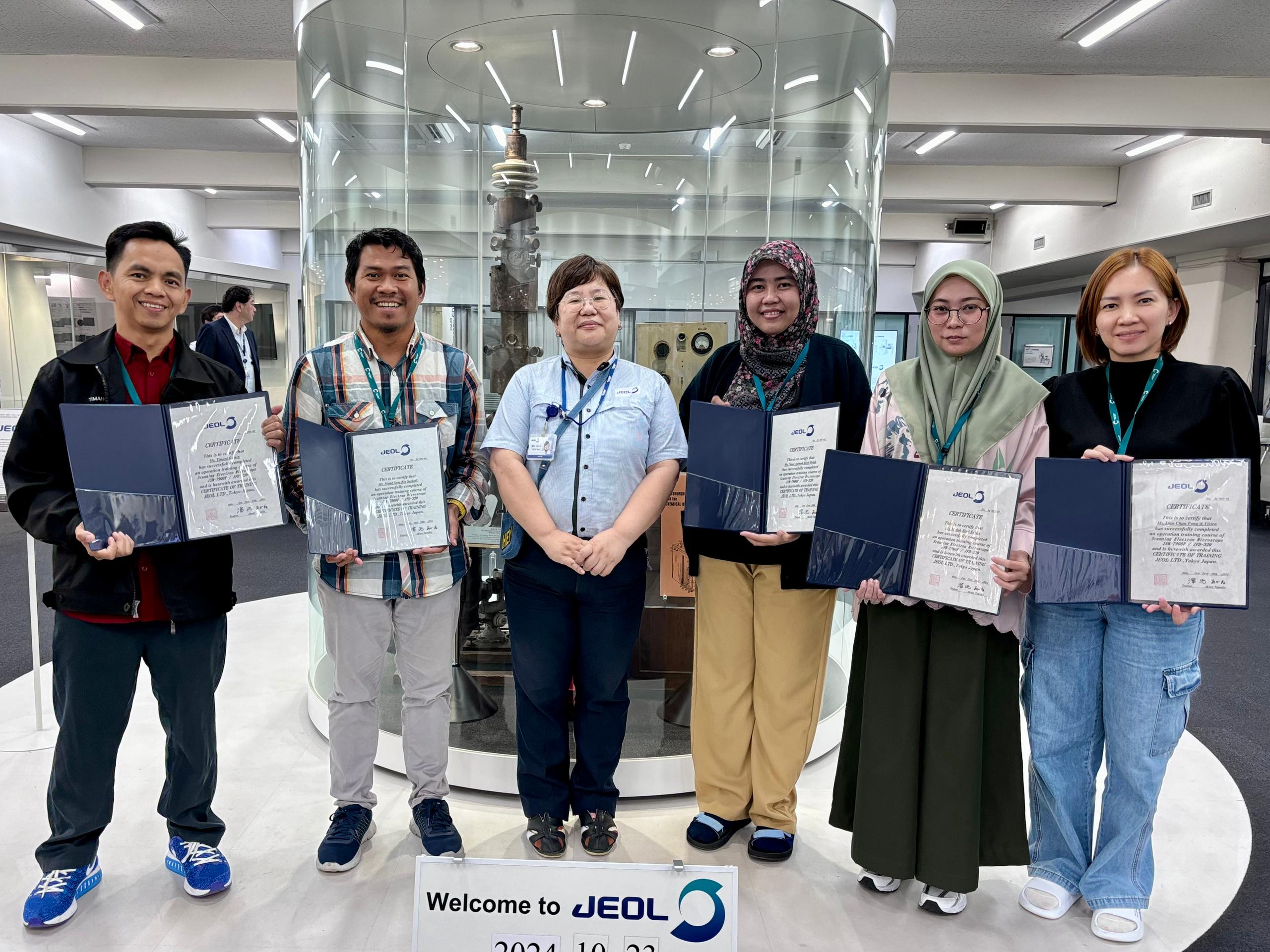 The Instrumentation and Science Services Center (PIPS) of Universiti Malaysia Sabah (UMS) recently sent five staff members to participate in an advanced training program at the JEOL Factory in Ohtemachi Chiyoda-ku, Japan.
The Instrumentation and Science Services Center (PIPS) of Universiti Malaysia Sabah (UMS) recently sent five staff members to participate in an advanced training program at the JEOL Factory in Ohtemachi Chiyoda-ku, Japan.
The five-day training focused on understanding the theory and operation of the Jeol Field Emission Scanning Electron Microscopy (FESEM) Model JSM-7900F.
The team included the Deputy Director of PIPS, UMS, Assoc. Prof. Ts. ChM. Dr. Mohd Sani Sarjadi, along with other staff members with backgrounds in science and technology.
FESEM is an advanced instrument used to examine extremely small surface details on objects, offering resolutions down to the nanometer scale.
According to Dr. Mohd Sani, the instrument is crucial in research fields such as chemistry, physics, and biology, allowing researchers to observe structures as small as 1 nanometer.
“During the course, participants were introduced to in-depth FESEM techniques and applications, including analyzing surface sample morphology and detecting chemical elements using EDX detection methods.
“The training also included practical sessions where participants had hands-on experience with the FESEM equipment, enabling them to gain a better understanding of its operations and capabilities.
“By attending this course, participants are expected to bring back valuable knowledge that will enhance the efficiency of FESEM usage at PIPS, UMS. This, in turn, will maximize the potential of the instrument in conducting research and analysis at the institution,” he explained.
The training was conducted by JEOL’s Manager of the Solution Promotion Department, Akane Tameike.
Dr. Mohd Sani further stated that through the course, participants would be able to offer expert consultation services to researchers at UMS and industry players, reducing reliance on external service providers for sample analysis using FESEM.
“The quality of research at UMS is also expected to improve through the more efficient application of FESEM technology, contributing to the advancement of knowledge and technology in Malaysia. Additionally, the training has the potential to elevate PIPS UMS’s profile as a leading reference center for FESEM analysis in the country.
“This training marks a significant step in PIPS UMS’s efforts to continuously develop the capacity and capabilities of its staff in the field of electron microscopy.
“With the knowledge and experience gained from this training, PIPS is expected to create a positive impact not only for researchers at UMS but also for the industry and the wider community,” he added.
PIPS UMS remains committed to advancing its capacity and capabilities in providing sophisticated and effective analytical services, serving as a catalyst for innovation and high-quality research.


